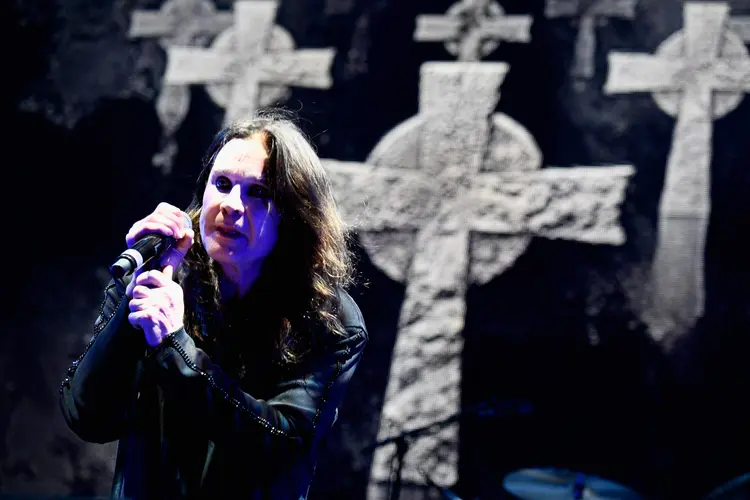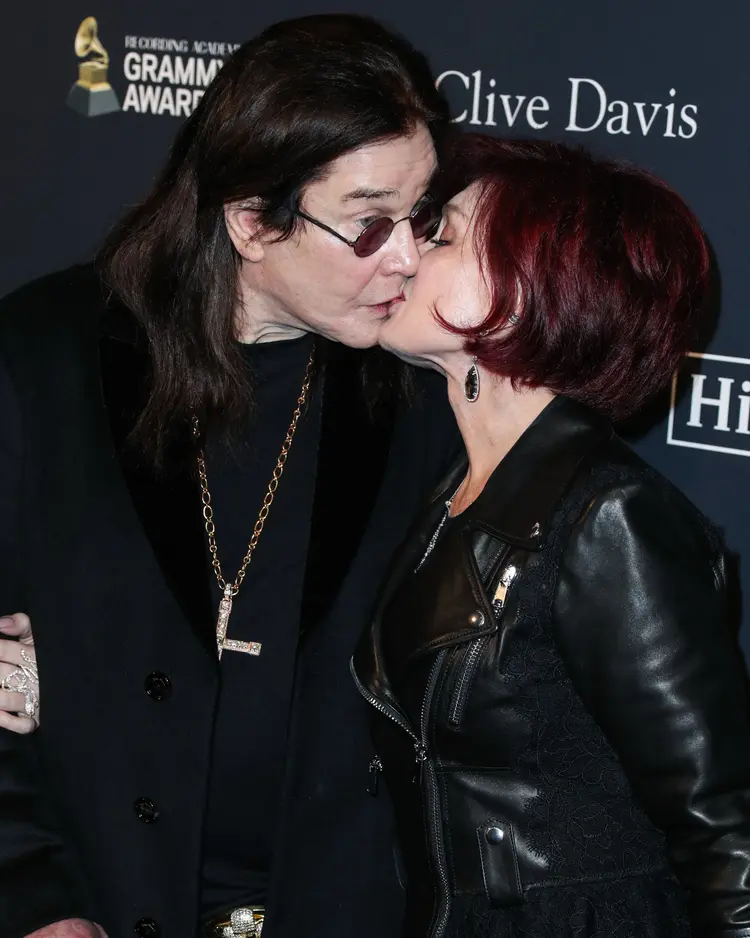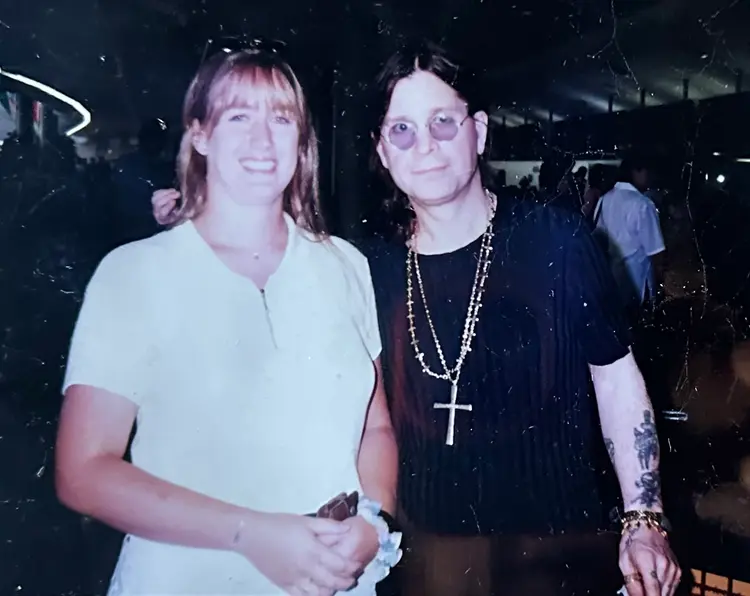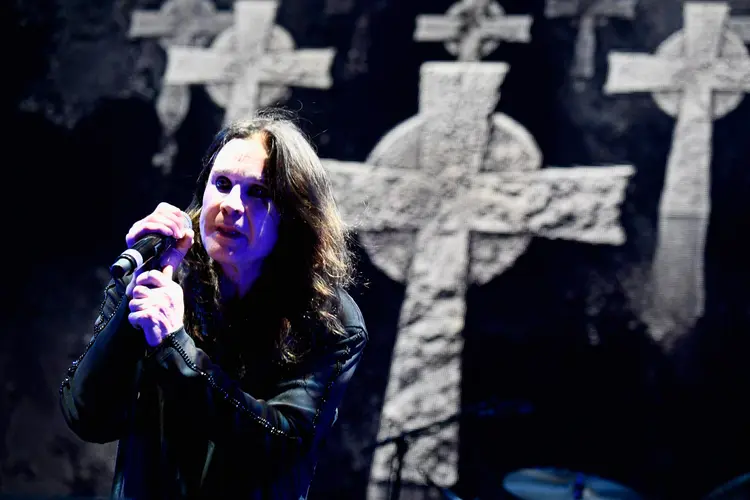When Ozzy Osbourne came to NZ he was calm and jovial with one odd request – that’s how Barry Coburn, the promoter behind Black Sabbath’s 1973 appearance at the Great Ngāruawāhia Music Festival, recalls the iconic rock star—as Ozzy Osbourne passed away just weeks after his farewell show, his NZ legend shines brighter than ever.
A Legend at Ease: Ozzy’s NZ Arrival
Black Sabbath exploded onto the New Zealand festival scene in 1973 with an aura of menace and mystery. Yet Barry Coburn, the concert organizer, remembers a surprisingly relaxed Ozzy. Despite a reputation for substance-fueled mayhem, he describes Osbourne as “calm and jovial”—walking caravanside in characteristic cool, far from the chaos legend hinted at.

That contrast—press-shy serenity behind the scenes and fierce stage presence—offers new insight into the man behind the myth. Just before showtime, Osbourne made a dramatic request: he wanted a massive burning cross erected on the hillside as they hit the midnight stage.
The Burning Cross Moment
Coburn rushed to assemble a wooden and wire cross, soaked in petrol, and set it ablaze at exactly the opportune moment: as Black Sabbath launched into their iconic opening riffs. This theatrical spectacle marked a defining moment in NZ music history—heavy metal arriving with ritualistic flair.

Fifty-two years later, this image still resonates. In a global tribute among mourners of Ozzy’s passing, this NZ concert stands out—not just for its theatrics, but for the audacity of the request and its flawless execution.
Breaking the Ozzy Stereotype
Barry Coburn’s reflections challenge a lasting stereotype: Ozzy as the erratic, drug-fueled frontman. He insisted the band were amiable young Brits who caused “no grief”—unlike the chaos attributed to contemporaries like Led Zeppelin’s John Bonham. The promoter’s earnest recounting gives us a more grounded view of the early Sabbath touring life.

This version of Ozzy—approachable, professional, and, yes, jovial—adds nuance to the Prince of Darkness persona. His legendary status endures not just because of onstage antics, but thanks to an offstage humanity seldom seen.
Lasting Influence on Metal
Coburn, now based in Nashville, still attends metal shows and notes Black Sabbath’s legacy lives on: fans wearing “Paranoid” T‑shirts, newer bands channeling Burton-era riffs. Marty Duda of NZ’s 13th Floor calls Ozzy’s impact “immense,” recalling how hearing Sabbath on a cassette at a Scout camp “changed everything – blew my mind.”
The band’s influence is global—born in Birmingham, blossomed in small NZ towns, and now mourned worldwide after Osbourne’s death on 22 July 2025.
Behind the Scenes: Lighter Moments
More memories came from 13th Floor’s Duda, who shared a wild anecdote: Ozzy, preparing to gargle before a show, drank a whole bottle of mouthwash, choked, vomited—and still went on stage. It’s moments like these—absurd, humorous, human—that endeared him to fans beyond the stage theatrics. They underscore the blend of rock-solid professionalism and raw unpredictability that defined Ozzy.
Global Mourning and Farewell
Ozzy passed away peacefully at 76, surrounded by family, weeks after his emotional “Back to the Beginning” farewell show at Villa Park, Birmingham. Tributes poured in globally—from Elton John describing him as “one of the funniest people,” to Rolling Stone’s Ronnie Wood calling his final concert a “lovely goodbye.”
While headlines searched his most outrageous moments (bat-biting, urinating on Alamo plaques, etc.), those close to him remember a man of contrasts: fiery onstage, yet grounded and human off it.
New Zealand’s Proud Place in Ozzy’s Story
For New Zealand, the 1973 festival stands as a proud memory—metal’s genesis moment down under. Coburn says Sabbath laid foundation stones for heavy metal, and every NZ gig since owes a debt to that midnight blaze.

Today’s artists and fans still feel the resonance. That festival marked heavy metal’s arrival in NZ, and it was an arrival that combined spectacle, shock, and a rock ethic built on authenticity.
Lessons from Ozzy’s Legacy
Ozzy’s life persona—heck, even his fatal health battles—never overshadowed his core message: rock with integrity. His openness about Parkinson’s, his frailty, his humanity in docuseries like The Osbournes, Ozzy & Jack’s World Detour—all contributed to a legacy of resilience and authenticity that transcends cliché.
From a pastor’s nightmare image to a beloved, self-deprecating father figure, Ozzy’s life journey reminds us: legends can be real people too.
Conclusion
When Ozzy Osbourne came to NZ he was calm and jovial with one odd request, and that simple image—of a laid-back rock star ordering a burning cross—still mesmerizes today. Beyond the stage theatrics, behind the chaos of heavy metal’s infancy, there was a comedian, a professional, and a human being.
As fans mourn and musicians pay tribute, this NZ moment encapsulates Ozzy’s paradox: dramatic darkness, soft heart. In the end, that’s the legacy of a man who defined heavy metal—and loved a good show.
Subscribe to trusted news sites like USnewsSphere.com for continuous updates.
[USnewsSphere.com / ET]





